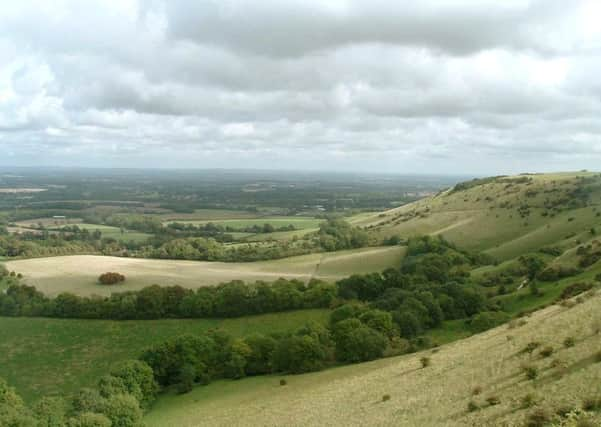Pre-historic discoveries made in South Downs national park


Laser scanning technology was used to map archaeological remains obscured by woodland for hundreds of years.
Archaeologists say the evidence of large-scale farming from pre-Roman times suggests an earlier civilisation on the site.
Advertisement
Hide AdAdvertisement
Hide AdTrevor Beattie, CEO of the South Downs National Park Authority, said: ‘The survey lets us peel back the woodland cover from the National Park to reveal archaeology both hidden, and protected, by the trees.
‘One of our biggest findings is the astonishing scale of pre-historic farming.
‘Archaeologists are going to have to rethink the human story in this part of the country.’
James Kenny, archaeology officer at Chichester District Council, said the discovery raises many questions about who was growing the crops, who was eating the food and where they were living, as no signs of settlements have been found.
Advertisement
Hide AdAdvertisement
Hide AdHe said: ‘The scale is so large that it must have been managed, suggesting that this part of the country was being organised as a farming collective on a very large scale.
‘It’s exciting to see such extensive field-systems so well preserved, which have probably lain untouched since the Romans left 1,600 years ago.’
Helen Winton, aerial investigation manager at Historic England, added: ‘The South Downs National Park has one of the most remarkable archaeological landscapes in England in terms of the range, extent and time depth of the archaeological earthworks preserved in the woodland.’
The survey also unearthed the route of a long-speculated Roman road from Chichester towards Brighton.
Advertisement
Hide AdAdvertisement
Hide AdExperts revealed that the road left Chichester on Stane Street before branching east and following a straight course towards Arundel.
The project, supported by the Heritage Lottery Fund, was led by the National Park Authority in partnership with Chichester District Council and Historic England.
The Romans invaded Britain in 55BC, although the first record of their settlement in the country was in 43AD. Roman Britain spanned from 43 to 410AD.
From 43AD, invading Romans began a great construction project across Britain resulting in a network of roads.